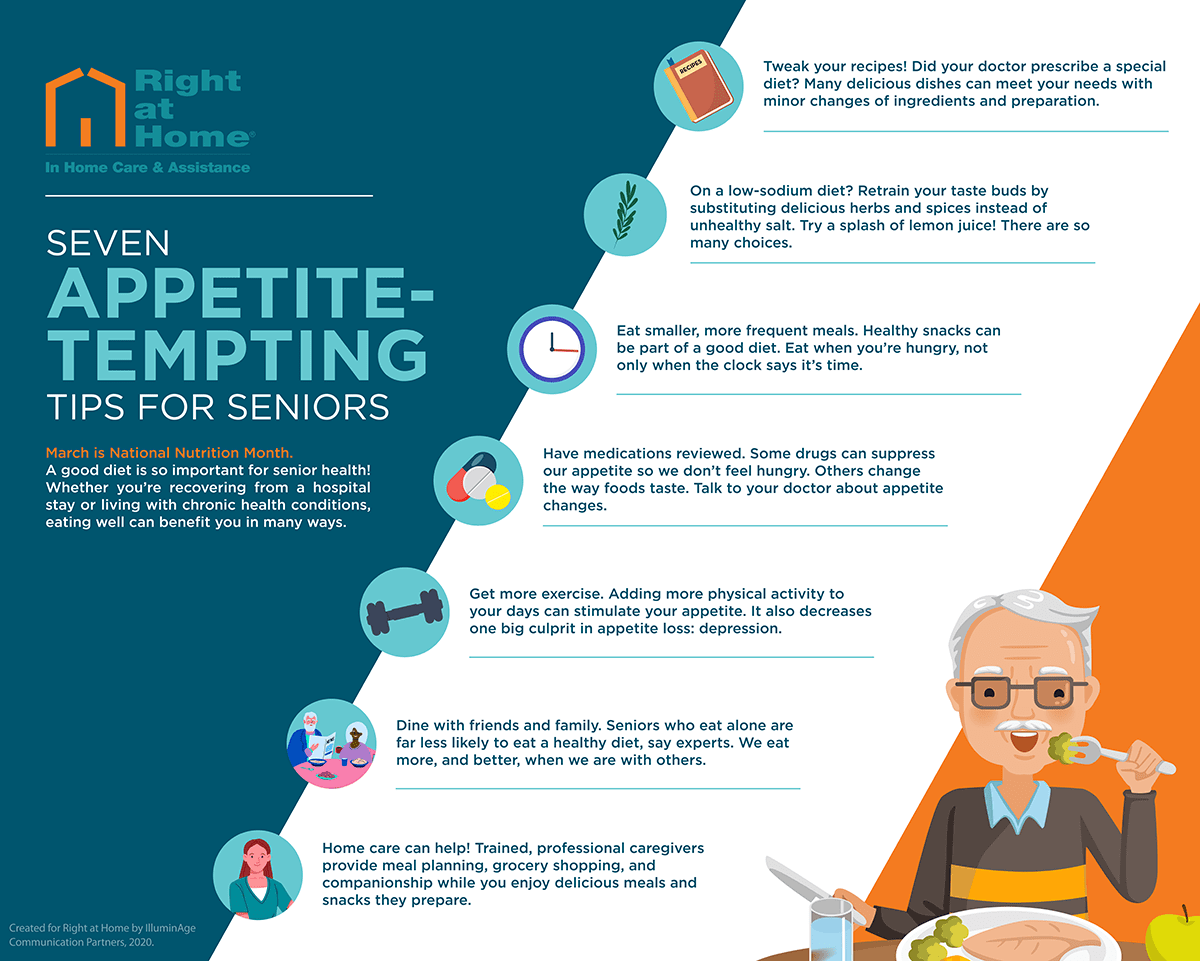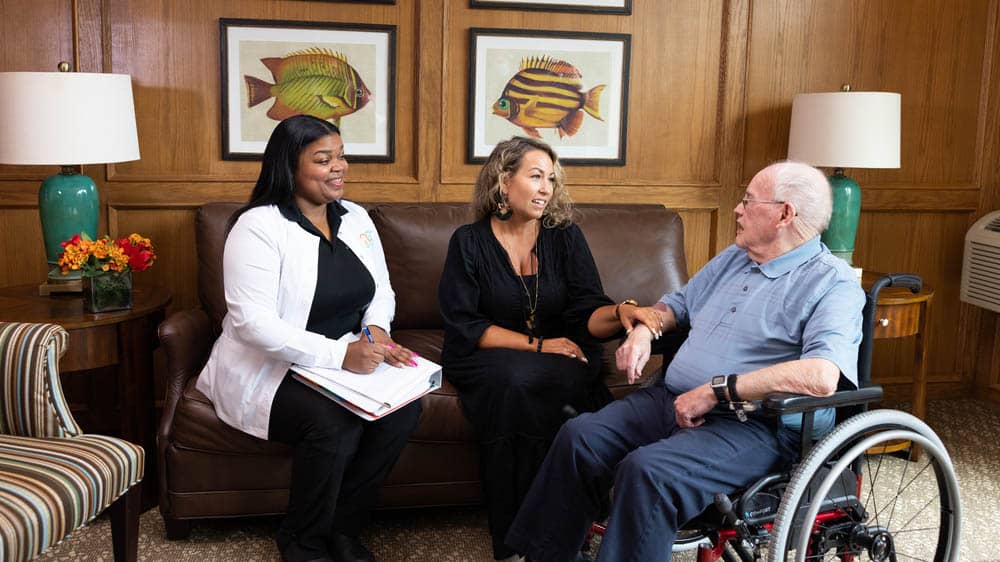

Nutrition Tips for Seniors
The saying goes, “You are what you eat.” Because nutrition plays such a big role in overall health, it’s important to make sure your senior loved one’s diet is balanced and healthy, and takes into account their lifestyle and any medical conditions. We’ve put together a few tips to help keep meals delicious, not daunting.

Seven Appetite-Tempting Tips For Seniors
March is National Nutrition Month.
A good diet is so important for senior health! Whether you're recovering from a hospital stay or living with chronic health conditions, eating well can benefit you in many ways.
- Tweak your recipes! Did your doctor prescribe a special diet? Many delicious dishes can meet your needs with minor changes of ingredients and preparation.
- On a low-sodium diet? Retrain your taste buds by substituting delicious herbs and spices instead of unhealthy salt. Try a splash of lemon juice! There are so many choices.
- Eat smaller, more frequent meals. Healthy snacks can be part of a good diet. Eat when you're hungry, not only when the clock says it's time.
- Have medications reviewed. Some drugs can suppress our appetite so we don't feel hungry. Others change the way foods taste. Talk to your doctor about appetite changes.
- Get more exercise. Adding more physical activity to your days can stimulate your appetite. It also decreases one big culprit in appetite loss: depression.
- Dine with friends and family. Seniors who eat alone are far less likely to eat a healthy diet, say experts. We eat more, and better, when we are with others.
- Home care can help! Trained, professional caregivers provide meal planning, grocery shopping, and companionship while you enjoy delicious meals and snacks they prepare.







